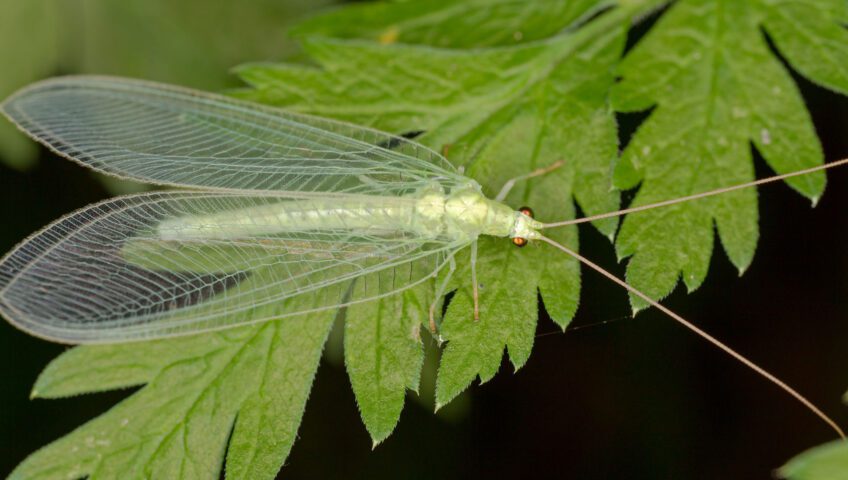In the intricate tapestry of nature, there are countless organisms that contribute to the balance of our ecosystems. Among them, lacewings stand out for their voracious appetites for pests. These creatures with their delicate wings and captivating habits play a crucial role in natural pest control.
Lacewings (Chrysopidae) are insects belonging to the order Neuroptera. Their name originates from the intricate lacy pattern of veins that adorn their wings, creating an ethereal appearance. With more than 13,000 species distributed worldwide, lacewings have established themselves as allies in agriculture and gardening.
Natural predators of harmful insects
The larvae, commonly referred to as “aphid lions,” are particularly efficient predators. They possess a set of pincer-like jaws that they use to seize and consume their prey. Lacewing larvae are known to have a highly varied diet, feasting on aphids, mites, whiteflies, thrips, scale insects and even small caterpillars.
The larvae are known for their rapid consumption rates, devouring many pests within a short period. They can eat up to 200 aphids in a single week, significantly reducing the populations of these destructive insects.
Ecosystem benefits
The presence of lacewings in an ecosystem is beneficial. They help control infestations that can damage crops, gardens and ornamental plants. This natural pest control reduces the reliance on chemical pesticides that can have detrimental effects on the environment and non-target organisms. Lacewings are an integral part of integrated pest management strategies, promoting sustainable and eco-friendly approaches to agriculture.
Attracting lacewings
To encourage lacewings to thrive in your garden or farm, you can implement several strategies. One effective method is to provide a diverse range of flowering plants, as lacewings are attracted to nectar and pollen. By offering an abundant and varied source of food, you can entice these insects to establish populations and help in the fight against garden pests.
To deal with more-persistent pests, don’t hesitate to call Slug-A-Bug at (321) 259-7844. We’ll provide you with a free, no-obligation assessment. Contact us today.
For more information
https://edis.ifas.ufl.edu/publication/IN120
https://entnemdept.ufl.edu/creatures/beneficial/green_lacewings.htm
https://www.gardeninsects.com/greenlacewings.asp
https://www.epa.gov/safepestcontrol/integrated-pest-management-ipm-principles
